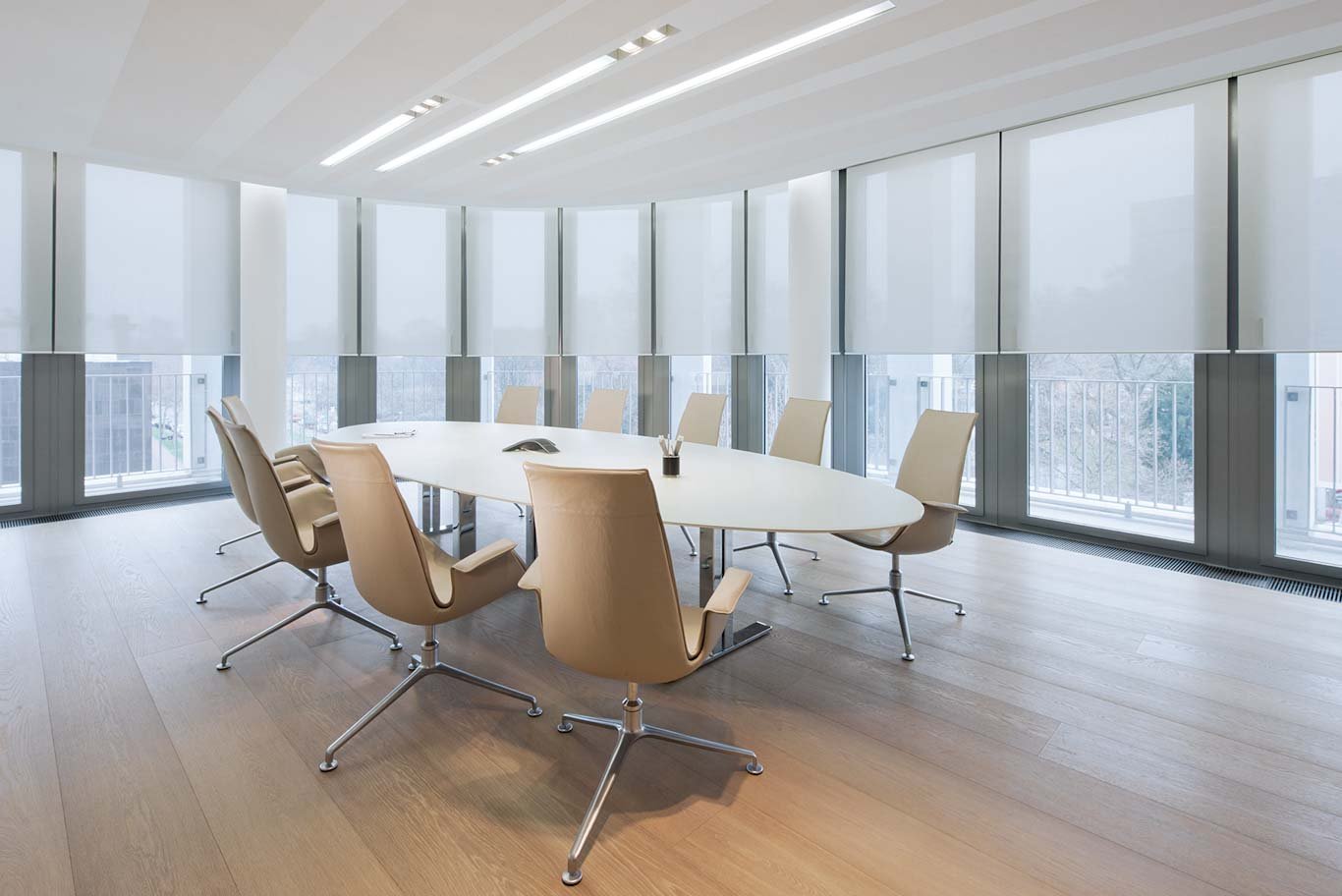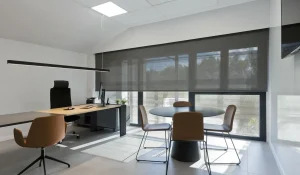In today’s fast-paced working environment, employee well-being and productivity are heavily influenced by the physical conditions of the workspace. One of the key factors that impact comfort and efficiency is thermal comfort, which relates to the temperature and air quality in an office setting. This post explores the importance of thermal comfort, the relevant regulations in place, and how the right window blinds from companies like Office Blinds Direct can significantly improve the thermal conditions of your workplace, keeping both employees and employers happy.
Understanding Thermal Comfort in the Workplace
Thermal comfort refers to the condition in which a person feels satisfied with the temperature of their environment. Factors such as air temperature, humidity, air velocity, and radiant heat all contribute to how comfortable or uncomfortable a person feels in their workspace. Thermal discomfort can lead to a reduction in productivity, lower employee satisfaction, and even increased absenteeism.
Why Thermal Comfort Matters
Maintaining proper thermal comfort isn’t just about keeping employees physically comfortable; it also has a direct impact on their performance. Research has shown that uncomfortable temperatures, whether too hot or too cold, can distract workers and reduce their efficiency. According to the World Green Building Council, offices that prioritize environmental comfort can see a productivity increase of up to 11%.
For employers in London and beyond, ensuring a thermally comfortable workspace isn’t just good practice; it’s a necessity. Not only does it contribute to employee well-being, but it also helps meet regulatory requirements, ensuring that businesses are compliant with the law.
Thermal Comfort Regulations in the UK
In the UK, employers are legally required to provide a safe and comfortable working environment. The Workplace (Health, Safety and Welfare) Regulations 1992 specify that workplaces should be maintained at a comfortable temperature. While these regulations don’t prescribe an exact temperature, they require that indoor workplaces be at a reasonable temperature during working hours.
The Health and Safety Executive (HSE) recommends a minimum temperature of 16°C for offices, though this can be lower for physically demanding work. While there’s no legal maximum temperature, employers must take action to reduce the effects of heat if the indoor environment becomes uncomfortable.
Failure to maintain adequate thermal conditions can lead to employee complaints and potential legal issues. Therefore, investing in solutions that help regulate temperature, such as the installation of proper window blinds, can play a vital role in ensuring compliance with these regulations.
The Role of Window Blinds in Enhancing Thermal Comfort
Window blinds are not just about controlling light; they are a highly effective tool for managing the temperature of your office space. By choosing the right type of window blinds, you can significantly enhance thermal comfort while also reducing energy consumption and improving overall aesthetics.
Here’s how window blinds contribute to better thermal regulation in the office:
1. Insulation Against Heat Loss and Gain
Windows are often the main culprit for heat loss during colder months and heat gain during warmer months. High-quality window blinds, such as those offered by Office Blinds Direct, can act as a barrier, preventing excessive heat from entering the room in the summer and retaining warmth during the winter.
Thermal blinds, in particular, come with layers of insulating material that reduce the exchange of heat between the inside of your office and the outside environment, keeping the indoor temperature stable throughout the year.
2. Reducing Solar Glare and Heat Build-Up
In an office with large windows, excessive sunlight can cause a significant build-up of heat, making the workspace uncomfortable for employees. Solar blinds are designed to block harmful UV rays and reduce solar glare, allowing natural light to filter through without increasing the room’s temperature.
By installing solar blinds, you can create a more balanced indoor environment, where workers can enjoy natural daylight without suffering from excessive heat or glare on their computer screens.
3. Lowering Energy Consumption
With window blinds that improve thermal insulation, businesses can cut down on energy costs. When your office stays cooler in the summer and warmer in the winter, there’s less need for air conditioning or heating. This energy efficiency not only benefits the environment but also helps reduce operational costs.
If you’re looking for office blinds in London that can help lower your energy bills, check out the wide range of options available at Office Blinds Direct.
4. Regulating Airflow
The right blinds can also play a role in managing airflow. Blinds with adjustable slats, such as vertical blinds or venetian blinds, allow for better control of airflow, letting you adjust them to let in fresh air while keeping the office temperature comfortable. This flexibility ensures that the blinds can be used to manage thermal comfort throughout the day, regardless of external weather conditions.
Choosing the Right Blinds for Your Office
When it comes to ensuring thermal comfort in your office, selecting the right type of blinds is crucial. Different types of blinds have different thermal properties, and the best choice for your office will depend on various factors, including the size of the windows, the direction they face, and the amount of natural light your office receives.
Here are some of the most effective types of blinds for managing thermal comfort:
1. Thermal Roller Blinds
Thermal roller blinds are an excellent option for maintaining temperature control in the office. These blinds come with a special thermal lining that helps keep the heat out during summer and prevents heat loss in the winter, making them ideal for year-round use.
2. Vertical Blinds
Vertical blinds are versatile and highly effective in managing light and temperature. They offer excellent control over sunlight exposure, making them ideal for larger office windows or floor-to-ceiling glass walls.
3. Venetian Blinds
Venetian blinds are another popular option for offices. The adjustable slats allow for precise control over both light and airflow, giving you the flexibility to manage the room’s temperature without compromising on natural light.
4. Solar Blinds
For offices with large windows that receive a lot of sunlight, solar blinds are a fantastic solution. These blinds reduce heat and glare while still allowing natural light to fill the space, creating a bright yet comfortable environment for your employees.
Conclusion
Thermal comfort is essential for maintaining a productive, healthy, and legally compliant office environment. By understanding thermal comfort regulations and the role that high-quality window blinds can play, businesses in London can ensure their employees stay comfortable, no matter the season.
At Office Blinds Direct, we specialize in office blinds that not only enhance the aesthetic appeal of your workspace but also improve its thermal efficiency. With a wide selection of blinds designed for optimal comfort and energy savings, we’re your go-to source for office blinds in London. Contact us today for a free quotation and see how we can transform your office space!






